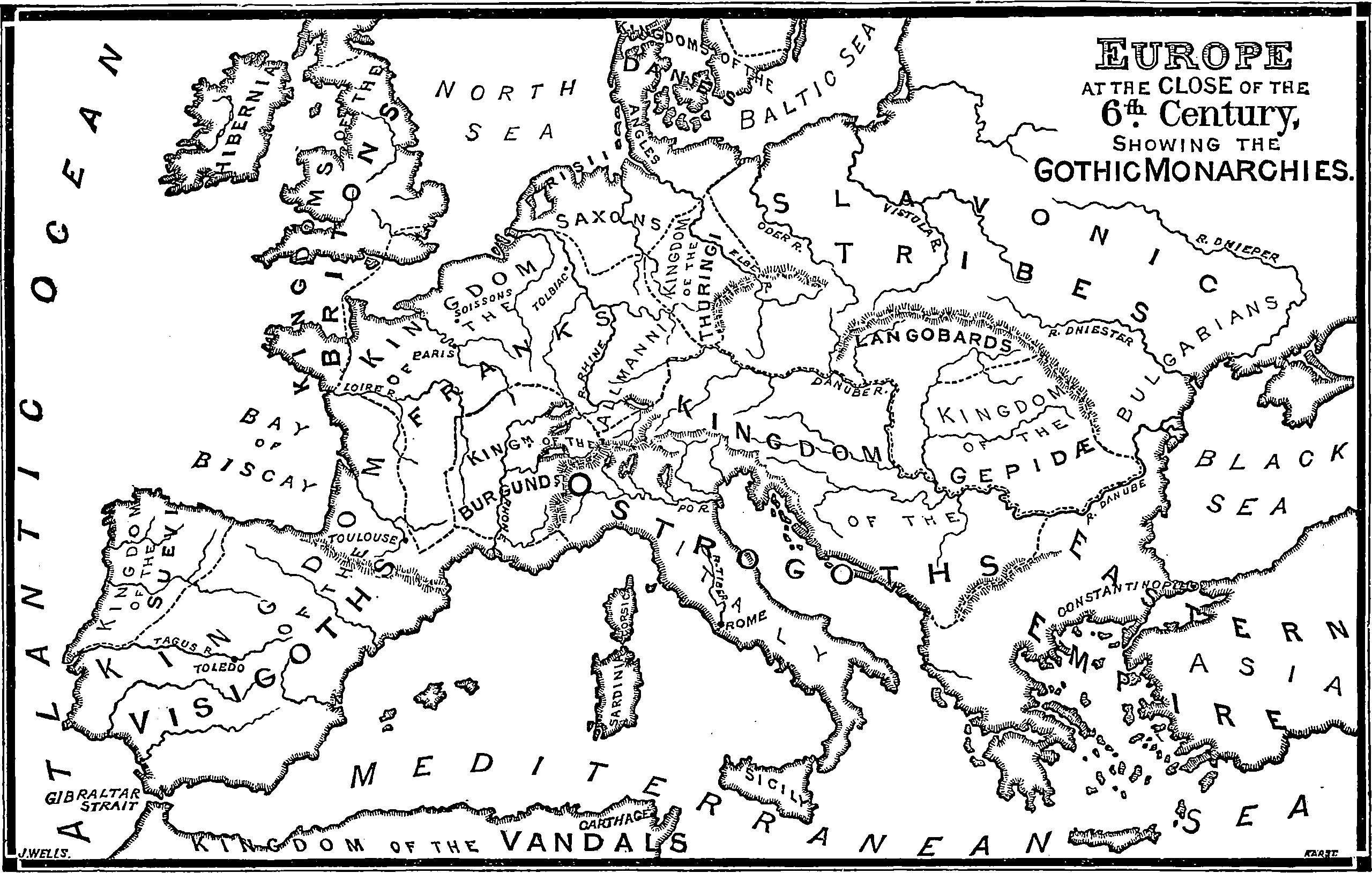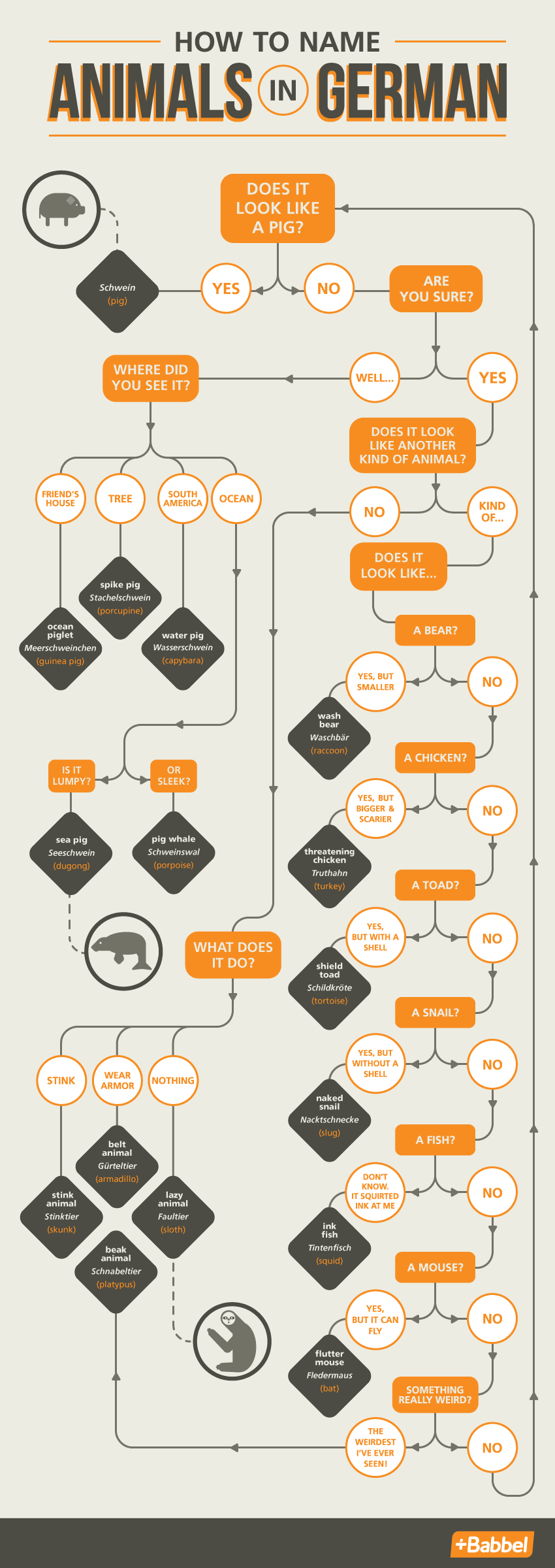German
Für Konsonantkenner
October 17, 2014 — October 20, 2021
Notes on a language I have enjoyed learning.
1 Learning resources
See also lernkarten, language learning, dictionaries…
- dict.cc is the most complete and vibrant online German translation dictionary
- linguee
- German is easy is by a lovely bloke named Immanuel in Berlin who writes memorably about difficult bits of the language.
- Germann is bite-sized chunks of Tumblr german, especially famous for the german accent meme
- Deutsch täglich/German daily
- of course there’s a stackexchange
2 Reading — general
The awful german language is Mark Twain’s classic essay:
The Germans have another kind of parenthesis, which they make by splitting a verb in two and putting half of it at the beginning of an exciting chapter and the other half at the end of it. Can any one conceive of anything more confusing than that? These things are called “separable verbs.” The German grammar is blistered all over with separable verbs; and the wider the two portions of one of them are spread apart, the better the author of the crime is pleased with his performance. A favorite one is reiste ab — which means departed. Here is an example which I culled from a novel and reduced to English:
The trunks being now ready, he DE- after kissing his mother and sisters, and once more pressing to his bosom his adored Gretchen, who, dressed in simple white muslin, with a single tuberose in the ample folds of her rich brown hair, had tottered feebly down the stairs, still pale from the terror and excitement of the past evening, but longing to lay her poor aching head yet once again upon the breast of him whom she loved more dearly than life itself, PARTED.
However, it is not well to dwell too much on the separable verbs. One is sure to lose his temper early; and if he sticks to the subject, and will not be warned, it will at last either soften his brain or petrify it.
3 Listening/viewing
- SWR2 Hörspiele are radioplays from the southwest german radio station SWR
- Goethe Institut podcast
- Belles Lettres “Deutsch für Dichter und Denker” is my favourite. Written by a linguist, it does not shirk from sophisticated ideas but uses elegant simple prose style that is easy to understand, and illustrates the whole thing with bold, clear animations.
- Chaos Radio Express is a technical stuff podcast.
- Easy German is a Youtube German street interview series
- Extr@ the low-budget tongue-in-cheek (BBC? Discovery?) soap opera.
- Vorleser is free German audiobooks
- Sachgeschichten is a segment about how stuff works from the famed Sendung mit Maus
- It is not about language _as such but Der deutsche Kleinstädter is kinda amazing
4 Incoming
- The new tense Future III (German German humour FTW)
- lingolia has nice baby introductions, e.g. to modal verbs
- noise/sound and why I don’t talk about sounds in German
- Mauerfall musik
5 Etymology
Etymology helps German learners:
… It’s no help to remember simply that prepositions like während, aufgrund, wegen, anstatt etc technically require the genitive (some more than others), but knowing that they were once adverbialised nouns helps a lot more. It is Auf Grund des bla bla bla, and An Statt der Sache etc.
It helps more to know masculine was the original gender, and when you don’t know if a made up or new word is anything, you can choose masculine if it doesn’t fit into the other boxes (obvious synonym, compound without the last word, non-noun turned into noun (das) etc.)
It helps to know how the strong verbs were formed to relate that to English and more simply memorise patterns, heck — it helps most people to know it’s Mädchen because of the diminutive ending.
It helps to know that accusative was originally used as a default case grammatically, when the adverb is a noun (Ich nenne dich einen Dummkopf, Ich frage dich eine Frage, Ich spreche kein Wort, Es liegt einen Kilometer in die Richtung, Den ganzen Tag musste ich mein Zimmer aufräumen… etc.) and not just for the direct object.
6 Yiddish
I would really like to learn about this marvellous intersection between Hebrew and German.
7 Declensions
Not so bad, but took me a few tries to learn. Helpful: Machine readable online database of german declensions.
Also, this was more helpful to entertain or perhaps understand than to memoriese, but I thought it was cute: Der Werwolf, von Christian Morgenstern
von Weib und Kind, und sich begab
an eines Dorfschullehrers Grab
und bat ihn: Bitte, beuge mich!
Der Dorfschulmeister stieg hinauf
auf seines Blechschilds Messingknauf
und sprach zum Wolf, der seine Pfoten
geduldig kreuzte vor dem Toten:
«Der Werwolf», — sprach der gute Mann,
«des Weswolfs»- Genitiv sodann,
«dem Wemwolf» — Dativ, wie man’s nennt,
«den Wenwolf» — damit hat’s ein End.
Dem Werwolf schmeichelten die Fälle,
er rollte seine Augenbälle.
Indessen, bat er, füge doch
zur Einzahl auch die Mehrzahl noch!
Der Dorfschulmeister aber mußte
gestehn, daß er von ihr nichts wußte.
Zwar Wölfe gäb’s in großer Schar,
doch «Wer» gäb’s nur im Singular.
Der Wolf erhob sich tränenblind —
er hatte ja doch Weib und Kind!!
Doch da er kein Gelehrter eben,
so schied er dankend und ergeben.
8 Verb pairs — «tränken/zum trinken bringen”
Long story, for later. Noted for my own curiosity:
- verbinden, verbünden?
- schwimmen, schwemmen
- setzen, sitzen
- legen, liegen
- nutzen, nützen
- trinken, tränken

